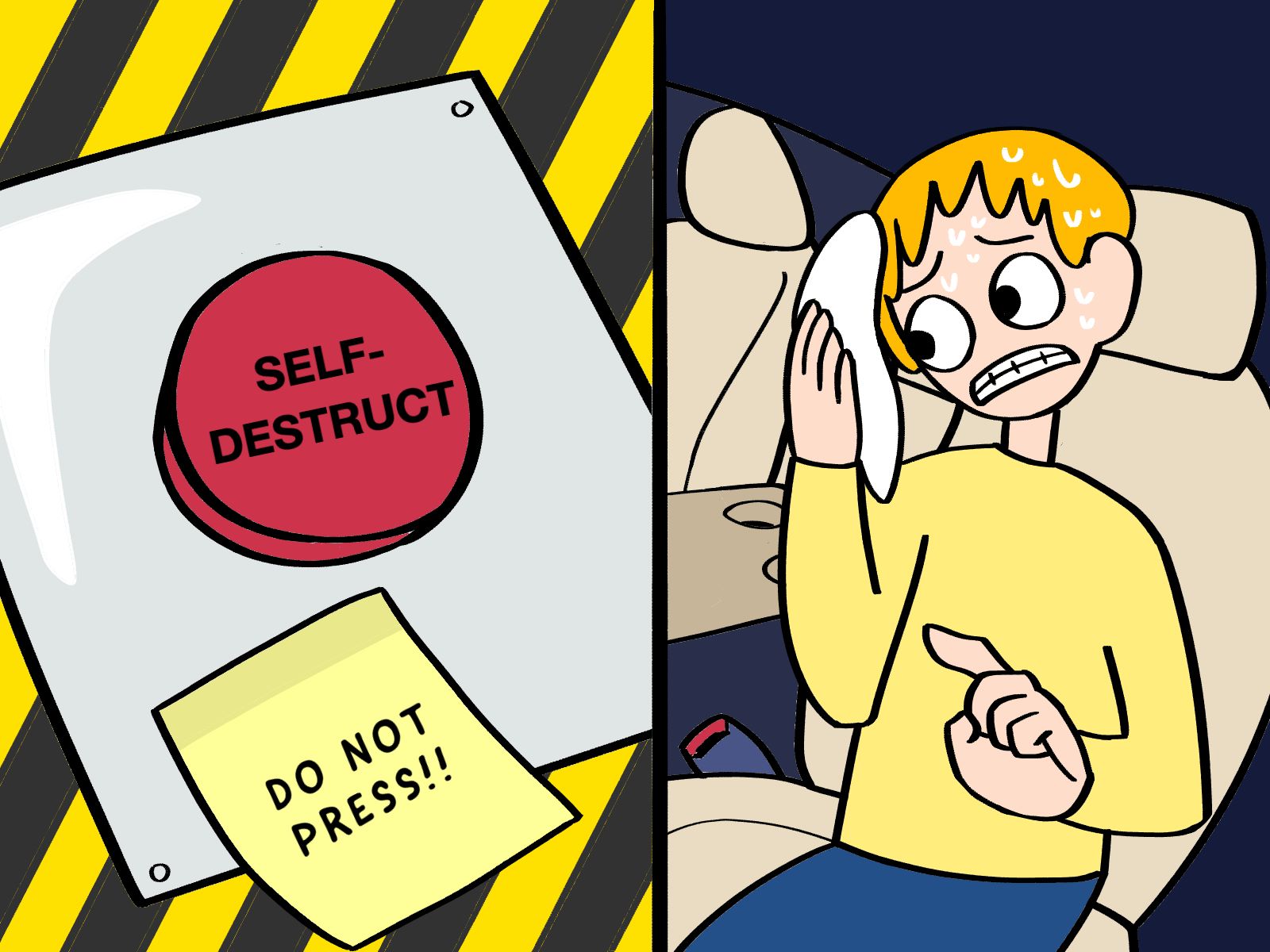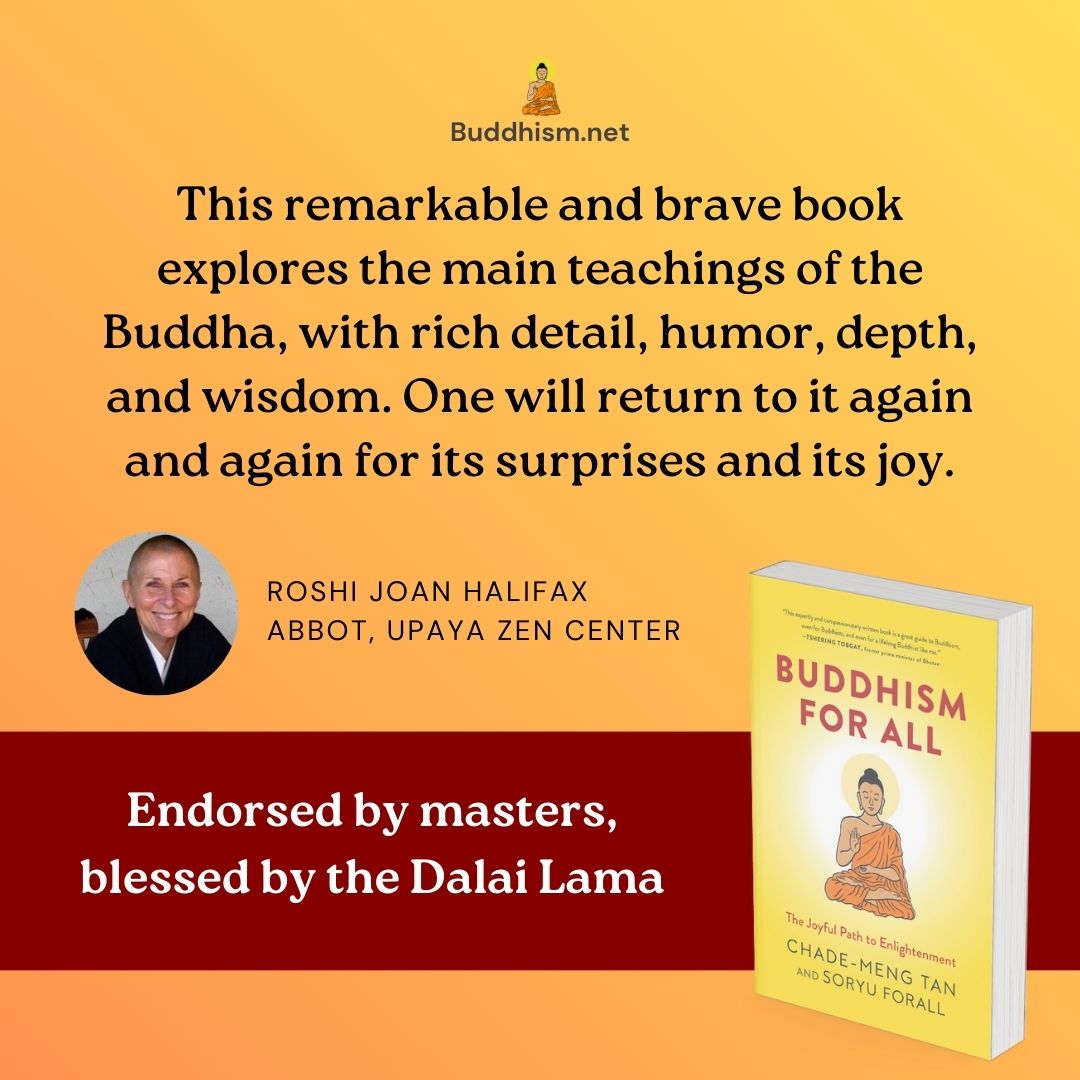
Imagine living in a weird world where cars come with a self-destruct button that you can order as an add-on. It’s a big red button right beside the cupholders that says, “Self-destruct, DO NOT PRESS”. If you press the button, the car blows up, with you in it. Of course, you don’t want to buy that, duh.
Your power in this situation is you do not actually have to buy the self-destruct add-on. Or, if you end up buying a second-hand car with this add-on, you can have it taken off, since it’s only an add-on, and all add-ons can be uninstalled. This is the same power we have over our suffering: it turns out we can choose not to order it. And when we do actually have it, it turns out to be an add-on that can be uninstalled.
When contemplating suffering and the First Noble Truth, it is easy to mistakenly consider suffering to be deeply embedded in the system of our experience, when in fact, it is actually an add-on. If you understand the system well enough, and if you’re equipped with the right tools (e.g., the right screwdriver and all), you can remove any add-on. Buddhism is about helping you understand the mind and suffering well enough, and giving you the right tools, to allow you to uninstall suffering. Later in this series, you will acquire the understanding and the right tools.

But even before learning to uninstall the self-destruct feature in your car, there is an essential first step: facing the fact that it is actually there. Imagine you bought yourself one of those cars with the self-destruct add-on. Why? Because it is 20% off (just for the add-on, not for the whole car!), and it is really hard to resist 20% off, I know. Trust me, I know. But you have buyer’s remorse very soon after that, especially considering how you’re going to have to explain to your spouse why you paid extra for a self-destruct button. What to do? Well, you can always pretend it is not there, and put duct tape over it to hide it from your spouse or something. Unfortunately, pretending it is not there will not solve the problem. Every time you put your large drink in the cupholder, you could miss and accidently trigger self-destruct, whether or not you pretend it is not there. The only real solution is to uninstall it, and there is no way to begin without first facing the fact that it is there.
In the same way, in uninstalling suffering, there is an essential first step: facing the fact that it is there. Soryu has a powerful way of articulating it, so I’m just going to quote him:
The path begins with a willingness to face our problems.
This is so hard, and so unusual, that the Buddha made it the First Noble Truth. He could have chosen anything as the starting point of his teaching. He could have begun with the goal, nirvana. Or he could have started by telling people how his teachings would help them get what they want. But he started by asking people to face their problems.
If, whatever problem arises throughout the day, you are willing to face it, and wish to understand it, you understand the transformative power of the First Noble Truth. To face suffering begins to transform suffering into happiness.
As the Buddha says, our suffering is the direct result of our grasping to the five aggregates. Things are impermanent, yes, but the suffering does not come from things being impermanent, it comes from our desperate grasping to the hope that some things are permanent. All five aggregates everywhere are unreliable, yes, but again, our suffering does not come from things being unreliable, it comes from our grasping to things despite them being unreliable. In contrast, not having to grasp to the five aggregates gives us perfect freedom, total security and the highest happiness. We will explore these topics in detail in the coming chapters.
Activities
Featured image by Natalie Tsang. Other image by Colin Goh.

